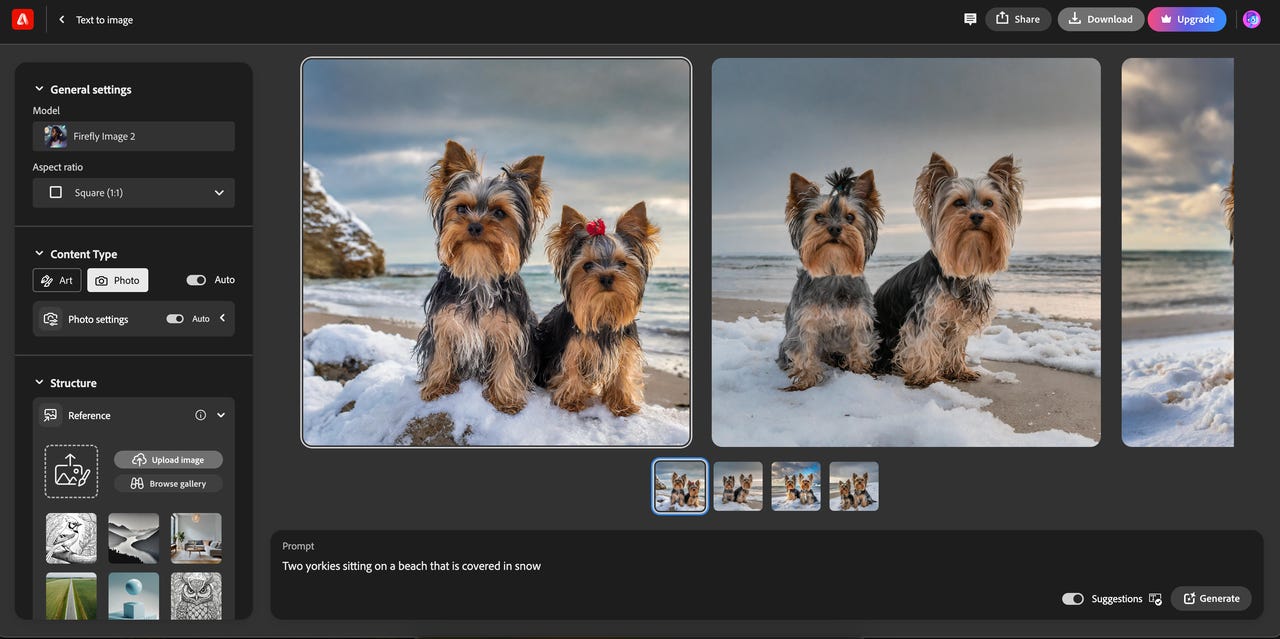Adobe is buying videos to train its new AI tool, but is it paying enough?

Adobe is recruiting help from its network of photographers and videographers to train its new AI text-to-video generator, but is the company paying enough?
In an effort to catch up with other AI video generators like Google's Lumiere and OpenAI's Sora, Adobe is purchasing videos that show people engaging in everyday activities like walking, running, using a cell phone, and working out, and other videos showing emotions like sadness, excitement, or rage. Adobe is also requesting simple videos of human anatomy like feet, eyes, ears, and hands, which AI notoriously struggles to depict correctly.
Adobe's rate for these videos is $120 for 40 to 45 minutes of content, according to Bloomberg, or roughly $3 per minute. Given that creators will likely receive no credit and no licensing or royalties, some are questioning whether Adobe is paying a fair rate. The company put out the same sort of call when it was seeking still images to train its AI, Bloomberg said, that time with a pay ranging from 6 cents to 16 cents per image.
Also: What are Content Credentials? Here's why Adobe's new AI keeps this metadata front and center
To be fair, this does at least seem to be the going rate.
In an article on companies purchasing content to train AI, Reuters quoted prices between 5 cents and $1 dollar per photo as well as more than $1 per video. Stock photo site Freepik told Reuters that the company licensed its 200 million image archive at 2 to 4 cents per image. Defined.ai, a company specializing in brokering AI training data, says companies like Google, Meta, Apple, and Amazon are willing to pay up to $2 per image, $2 to $4 per short form video, and $100 to $300 per hour for longer video.
Since 2023, Adobe has rolled out several AI products and features, including Firefly, its text-to-image generator. Since AI-generated video is clearly the next leap, Adobe is trying to keep pace.
It's no secret that AI models requires large swaths of data for training. The source of this data, however, can often be a cause for concern. To this point, Adobe has tried to differentiate its AI products by training them on in-house photo and video assets, including ones specifically made for this purpose. This makes for a unique approach not only because the content isn't publicly available, but because the content is almost exclusively geared towards marketing and creativity.
In 2023, OpenAI and Google reportedly used YouTube transcripts to train their AI models and X updated its privacy policy to say the company intended to train AI using its users' content as well.
